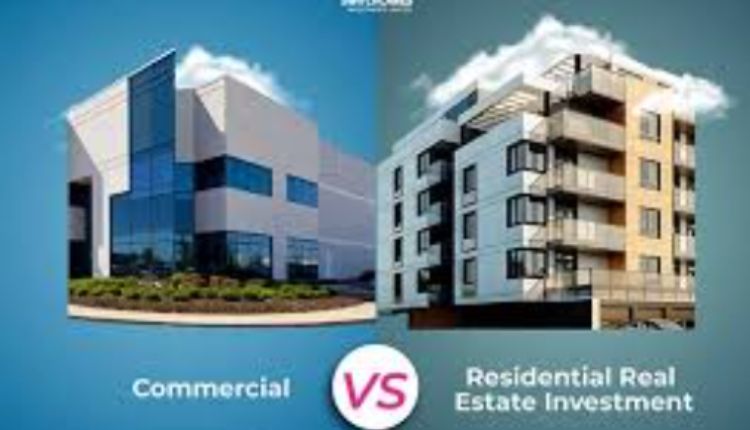For non-EU investors eyeing the Portugal Golden Visa, real estate has historically been the most popular path to residency. But with evolving regulations and a dynamic market, one key question is gaining traction: Should you invest in commercial or residential property?
Both routes can help you qualify for the Golden Visa, but each comes with its own set of benefits, risks, and long-term returns. Let’s break down the pros, cons, and current trends to help you make a smarter, more strategic investment decision.
Understanding the Golden Visa Real Estate Requirements
To qualify for the Portugal Golden Visa program through real estate, you must invest a minimum of:
- €500,000 in real estate (any type), or
- €350,000 in properties older than 30 years or in urban regeneration zones (including renovation costs)
However, since January 2022, residential properties in high-density areas like Lisbon, Porto, and most of the Algarve no longer qualify for Golden Visa purposes. This has significantly reshaped investor behavior—making commercial property an increasingly attractive alternative.
Why Residential Property Was So Popular
Residential real estate has long appealed to Golden Visa investors due to its:
- High rental demand in cities like Lisbon and Porto
- Strong appreciation potential in tourist hubs
- Simplicity in acquisition and management
Many investors opted for short-term vacation rentals (Airbnb-style) in city centers or resort areas. However, regulatory changes limiting residential investments in these zones—and increasing restrictions on short-term rentals—have dampened the appeal of this once-lucrative option.
The Rise of Commercial Property for Golden Visa Investors
With residential real estate facing tighter rules, commercial properties have stepped into the spotlight. These include:
- Hotels and guesthouses
- Retail spaces
- Office buildings
- Warehouses or industrial units
- Student housing or co-living spaces
Commercial investments remain eligible throughout Portugal, including Lisbon and Porto, offering greater location flexibility.
Benefits of Commercial Property:
- Higher Rental Yields: Commercial properties often deliver better returns than residential, especially in prime business or tourist districts.
- Long-Term Leases: Businesses typically sign longer lease agreements, providing more stable cash flow.
- Eligible in Prime Locations: Unlike residential, you can still invest in central Lisbon, Porto, or the Algarve and qualify for the Golden Visa.
- Hands-Off Management: Many commercial properties are sold with tenants and management contracts, making them ideal for passive investors.
Comparing the Two: Key Considerations
| Feature | Residential Property | Commercial Property |
| Minimum Investment | €500,000 or €350,000 (rehab) | €500,000 or €350,000 (rehab) |
| Location Options | Restricted in major cities | Available nationwide |
| Rental Yields | Moderate (3–5%) | Higher potential (5–8% or more) |
| Tenant Turnover | High (especially short-term rentals) | Low (businesses prefer long leases) |
| Management | Can be hands-on | Often outsourced |
| Resale Market | Broader appeal | More niche, may take longer to sell |
| Risk Profile | Generally stable | Market-dependent (retail, tourism, etc.) |
Risks to Watch Out For
Residential Risks:
- Tourism dependency in some regions affects short-term rental demand.
- New regulations could limit rental income or impose taxes.
- Urban areas may continue to face Golden Visa restrictions.
Commercial Risks:
- Commercial spaces tied to retail or tourism can suffer during economic downturns.
- Requires deeper due diligence on tenant stability, foot traffic, and local demand.
- May be harder to finance through traditional banks compared to residential properties.
Who Should Choose What?
- Commercial Property is ideal for:
- Investors looking for higher yields
- Those seeking prime locations still eligible for Golden Visa
- Passive investors wanting fully managed properties
- Entrepreneurs wanting to run or co-own a business (like a hotel)
- Investors looking for higher yields
- Residential Property suits:
- Investors focused on long-term appreciation
- Those targeting rehabilitation zones or rural areas
- People planning to personally use the property as a second home
- Investors focused on long-term appreciation
Final Verdict: Which Is Smarter?
There’s no one-size-fits-all answer. However, in today’s market—with Golden Visa restrictions on residential properties in prime locations—commercial property offers more flexibility, better yields, and continued eligibility in major cities.
That said, investors must evaluate each opportunity carefully. Factors like tenant quality, location trends, and local demand will determine whether your investment is truly “smart.”
If your goal is a blend of residency, stable returns, and long-term growth, commercial property is currently the more strategic choice for many Golden Visa applicants.






